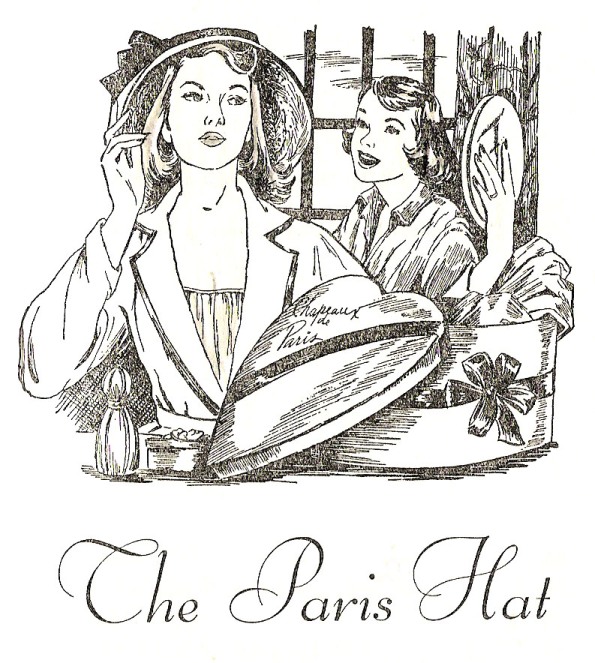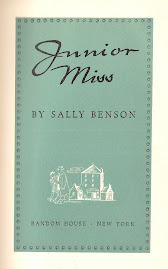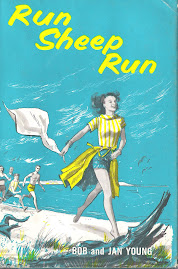 Title: Sweet Sixteen
Title: Sweet SixteenAuthor: Anne Emery
Jacket: Georgeann Helms
Publisher: Macrae, Smith, 1956
Setting: Marquette, Indiana, two hours by bus from Terre Haute
Provenance: "Kathy Himsl" written in front cover
Fun: how to be a juvenile delinquent in 6 easy lessons; training a heifer ; a school bond issue
Quote: "You do the strangest things," marveled Bunny. "That 4-H all the time -- and orchestra. Don't you ever have any fun?"
Don't be deceived by the innocent cover! There are bad girls in this book! Bad, bad girls! Girls who laugh at the 4-H club! Girls who order hamburgers in drugstores at 12:30 at night! And bad boys, too! You know, grease monkey types, always fixing cars!
OK, I'll stop, but I do want to at least give Anne Emery credit for landing herself with a subject that most YA writers today won't touch. Any kind of mutation or peril is fair game, it seems, but an ordinary girl who gets bad grades and thinks she's dumb? A girl who doesn't even like to read? You've got to be kidding. What kind of a protagonist is that?
Jane Ellison was also the heroine of an earlier Emery title, Hickory Hill, in which she bought a calf and developed an interest in farming (and farmboys.) Now, like a typical sixteen year old, Jane has moved on. She's going to high school and she has sarcastic Mrs. Shelby who won't explain the difference between the Pilgrims and the Puritans and there's no point in trying to please her. After all, her new friends Bunny and Rita are positive that there's only one thing really important in life:
"I say a girl's first job is getting a husband," Bunny announced..."It's not as easy as it looks, either. That's why I'm not going to let Stan go until something better comes along. At least he's got a job."
It should be noted that Emery distances herself from this attitude by having Jane's mother later say, "Bunny and Rita don't seem like our kind of people."
Sweet Sixteen would be more meaningful if we could see how Jane actually improves her grades. There are a few wispy scenes in which Jane confides in another teacher, Miss Morgan, and a few more when she studies harder, but the motivation for this change is lacking. (A big scene in which Bunny and Rita are shown to be two-faced cats would be nice, too, but instead they just drift away.) At the end of the book Miss Morgan's suprise wedding swamps the narrative entirely, but somewhere in the midst of it Jane sells her calf and realizes she's no longer interested in Chuck, the farmboy next door. She's moved on again. Perhaps the real comfort of Sweet Sixteen lies in this implication for parents and struggling students: bad grades are just another phase.











No comments:
Post a Comment